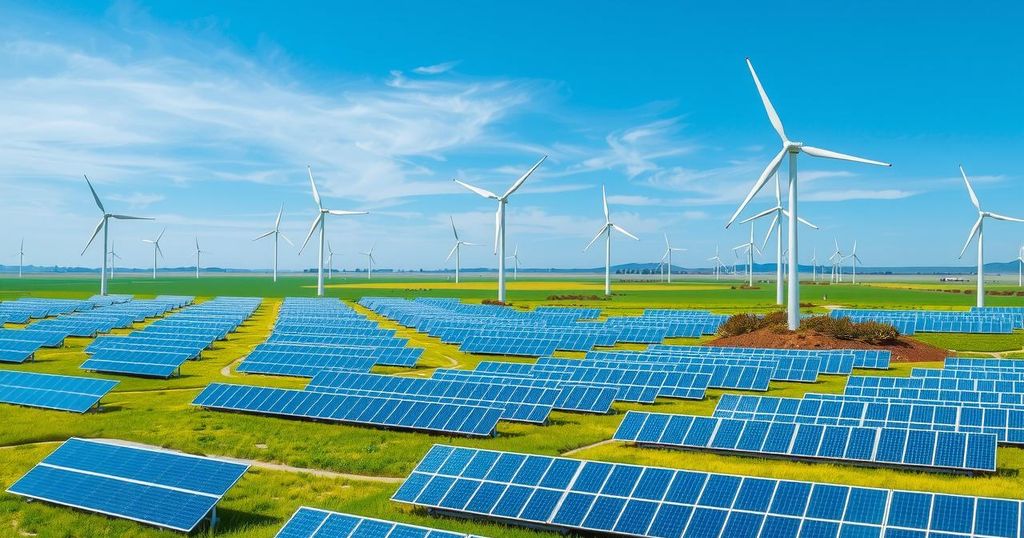The U.S. revocation of Iraq’s sanctions waiver has plunged it into an energy crisis, significantly impacting its electricity generation reliance on Iranian imports. The necessity for Iraq to become self-reliant is emphasized; however, the country faces immense infrastructure and political challenges. Without international support to upgrade its energy capabilities, Iraq’s energy dependency on Iran risks prolonged instability and outages.
The recent decision by the Trump administration to revoke Iraq’s sanctions waiver, which had permitted the country to import Iranian natural gas, has triggered a significant energy crisis. Historically, Iraq relied on Iranian energy imports to generate approximately 40% of its electricity, equating to about 10 gigawatts of power. This unexpected development coincides with the U.S. strategy of applying maximum pressure on Iran to secure negotiations over its nuclear program.
Although Iraq possesses substantial oil and gas reserves, it is currently unable to utilize these resources effectively due to inadequate infrastructure. The Iraqi government faces immense pressure to become self-sufficient, a directive that aligns with overall U.S. foreign policy goals against Iran. Iraqi gas, often flared rather than captured, remains underutilized in terms of electricity generation, making reliance on Iranian imports more pronounced.
Iraq’s energy challenges are compounded by decades of conflict, which have severely hindered the nation’s infrastructure. Despite its ambition to generate 28 gigawatts of electricity this summer, many experts consider this goal overly optimistic given the current circumstances. With energy supplies largely dependent on Iranian gas, Iraq risks prolonged outages as alternatives are sought without immediate success.
The impending challenges also arise from Baghdad’s efforts to resolve political disputes with Iraqi Kurdistan, which, if successful, could enable oil exports through Turkey. The urgency for the Iraqi government to sever ties with Iran stems from the necessity to mitigate Tehran’s influence over Iraqi affairs, a task complicated by Iraq’s own sectarian diversity and entrenched political affiliations.
The country’s energy infrastructure has suffered significantly due to external interference and internal instability, with critical projects facing hurdles such as terrorism and corruption. An example is the Jordan-Iraq electricity project, intended to interconnect the electricity grids of Jordan and Iraq. This initiative, while promising, has been delayed due to funding issues and political disagreements, highlighting the difficulties faced in enhancing Iraq’s energy independence.
Addressing Iraq’s energy needs effectively could help mitigate its reliance on Iranian imports, offering substantial economic relief for ordinary citizens currently dependent on costly private generators. International financing and support, particularly from the U.S., is crucial for the progression of infrastructure upgrades and energy diversification.
Despite the existing resources, Iraq’s current energy generation heavily relies on fossil fuels, with less than 3% of its electricity derived from renewable sources. This underutilization presents an opportunity for growth in renewable energy contributions, yet systemic inefficiencies inhibit progress.
The call for U.S. support is urgent; it is unreasonable to expect Iraq to achieve energy independence without significant assistance in rebuilding its energy sector. While President Trump aims to leverage Iraq’s energy policy in broader negotiations with Iran, the lack of viable alternatives places Baghdad in a precarious position. Allies should foster initiatives such as the Jordan electricity connection to assist Iraq rather than exacerbate its vulnerabilities.
In conclusion, Iraq’s energy crisis illuminates the intricate relationship between foreign policy and domestic infrastructure needs. The U.S. is encouraged to reconsider its withdrawal of Iraq’s sanctions waiver and to lead efforts in facilitating Iraq’s path toward energy self-sufficiency while reconstructing its energy grid and infrastructure fundamentally.
In summary, Iraq’s energy crisis, stemming from the revocation of its sanctions waiver by the U.S., underscores the pressing need for international support to enhance its energy infrastructure. While Iraq possesses considerable natural resources, the absence of adequate domestic facilities is forcing continued reliance on Iranian imports. A coordinated response from the U.S. and other nations is essential to assist Iraq in obtaining energy independence and resolving the multifaceted challenges it faces, thereby ensuring sustainable growth and stability in the region.
Original Source: www.arabnews.com




